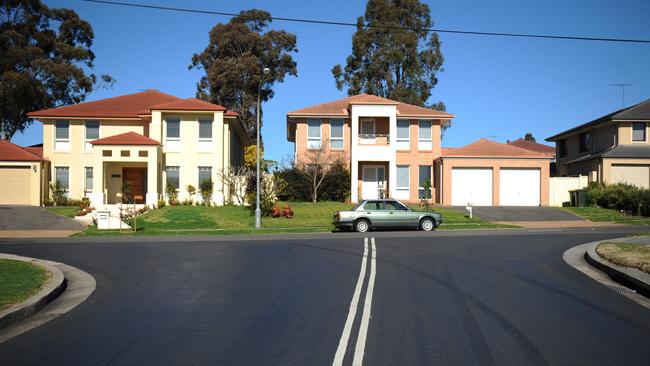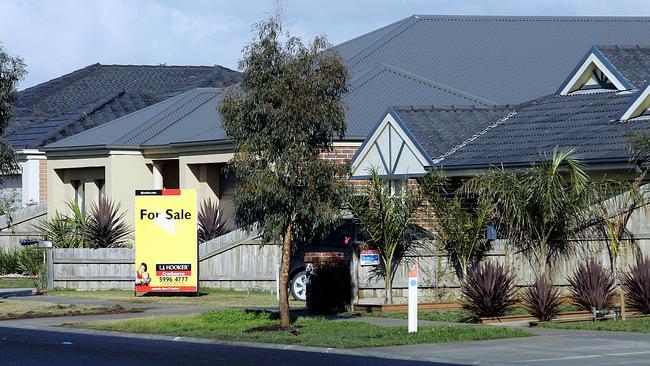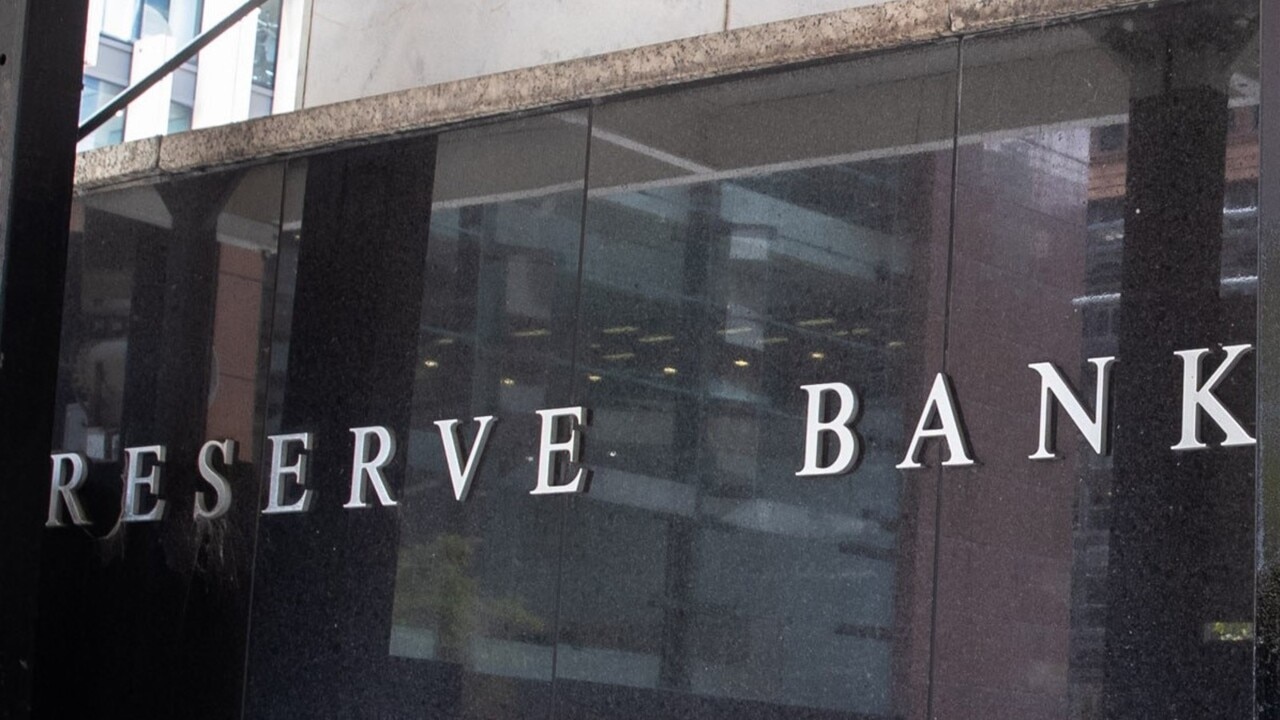The average mortgage repayment burden is set to hit a record high
The average mortgage holder will be dedicating a record quarter of their pay to servicing their home loan, modelling reveals.

A 12th interest rate rise on Tuesday would push the average Australians’ mortgage repayment burden to its heaviest in history, as economists warn the Reserve Bank could be forced to deliver as many as three hikes over coming months to tame inflation.
Indebted homeowners on average will be dedicating a quarter of their take-home pay to meeting mortgage obligations, according to modelling by the ANU’s Centre for Social Research and Methods, or 50 per cent higher than before the pandemic.
In contrast to the intensifying pressure on the country’s mortgage belt, and despite talk of a rental crisis and the double-digit increases in asking rents facing some Australians, the ANU analysis showed renters on average are spending a slightly lower share of their disposable income on housing costs than before the pandemic, at 23 per cent.
ANU associate professor Ben Phillips said “overall mortgage costs as a share of income are at record highs since 1984 with a very sharp increase in the last two years obviously related to sharp increases in interest rates, but also higher average debt levels”.
Professor Phillips’ analysis assumed only one further rate hike this year, which could be delivered as soon as Tuesday’s RBA board meeting, as financial markets priced in a 36 per cent chance of a rise from 3.85 per cent to 4.1 per cent.
The ANU analysis follows budget forecasts that rent inflation will peak at about 8 per cent this month, and be 6 per cent higher throughout the year.

Average housing costs as a share of take-home pay is highest for the poorest 20 per cent of households, projected at about 40 per cent for renters in this group, the modelling showed. That, however, was down from 44 per cent in 2019.
Professor Phillips said very weak rent increases between 2019 and 2021, a strong lift in employment opportunities, and solid rise in welfare payments – thanks to inflation-linked increases and budgeted measures in May and under the previous government – have all contributed to a steady rental burden through recent years.
“Still, it remains the case that low-income households pay a greater share of income on housing than any other group,” he said.
And the yoke around many borrowers’ necks may grow heavier yet, as a number of economists upped their peak cash rate forecasts to 4.35 per cent. Deutsche Bank on Monday predicted the RBA would be forced to deliver a total of three quarter-point interest rate rises between now and August.
NAB senior currency strategist Rodrigo Catril said “all roads point to a higher cash rate in Australia, whether it’s tomorrow or in the coming months”.
RBA governor Philip Lowe has warned that wage growth at current levels would not be sustainable without reviving the country’s flatlining productivity.
Dr Lowe’s warnings, alongside last week’s hot inflation numbers and Friday’s big boost to the minimum wage, suggested “getting inflation back to 3 per cent is getting harder,” Mr Catril said.
Centre for Independent Studies chief economist Peter Tulip said advertised rents had been “taking off like a rocket”, and that it was reasonable to assume that prices in the consumer price index would eventually catch up to that double-digit growth.
Dr Tulip said the RBA should lift rates more quickly in order to bring inflation back to target earlier, and that the bank’s internal research suggested this could be done without a major lift in inflation.
“There’s no obvious reason to me why they are dillydallying,” he said
So far, any evidence of mortgage distress remains scant. The share of borrowers behind on their repayments has begun to climb, but remains low.
The true hit from climbing rates, however, is still to come.
Thanks to the three-month lag between RBA rate hikes, and the more than 800,000 homeowners still on ultra-cheap fixed rates, only about half of the past year’s 11 rate rises have actually hit total mortgage repayments across the 3.3 million households with a mortgage, according to the RBA.

CBA head of Australian economics Gareth Aird said “the pain is going to land most acutely on the recent entrants into the housing market, who borrowed at a higher multiple of their income when rates were incredibly low”.
“The last thing a household wants to do is hand back the keys and sell the house, so in theory they will do whatever they can to meet those higher mortgage payments,” Mr Aird said.
“For many, the first point of call will be to cut back on discretionary spending and then substitute for cheaper essentials.
Mr Aird, who predicted the central bank would hold rates steady on Tuesday, said the fallout from the RBA’s inflation battle on the economy would depend not just on how high rates go, but how long they stay there.
“There are some households that are ahead on their payments, and so for a period of time can use those buffers to keep paying off the loan. But the longer rates stay elevated, the harder it is to keep making those repayments,” he said.








To join the conversation, please log in. Don't have an account? Register
Join the conversation, you are commenting as Logout